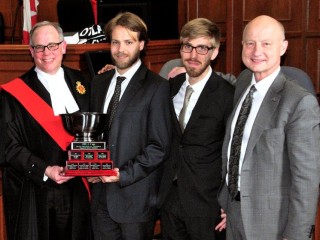This recent Superior Court decision highlights the underlying rules of ethical duties that counsel must uphold in the course of litigation.
More specifically, the case delved into Rule 34.14 of the Rules of Civil Procedure, a critical rule that guides the adjournment of discovery sessions. This summary aims to dissect the court’s analysis and judgment in this riveting case, centring around a heated dispute between Mr. Brown, a seasoned lawyer, and Ms. Asaduzzaman, a junior lawyer.
Background
The case involved a discovery session where Mr. Brown found himself restricted in the questions he could ask. He felt this limitation disrupted the “flow” of his discovery process and adjourned the examination, citing Rule 34.14. Ms. Asaduzzaman, on the other hand, clarified that she was not making a blanket refusal to all questions but was objecting to those concerning ongoing medical issues.
The Court’s Analysis
Scope of Rule 34.14: The court underlined that Rule 34.14 should only be invoked when “interference has become so extreme as to render the discovery futile.” Simply feeling that the “flow” of discovery is disrupted does not suffice.
The court emphasized that a mere disagreement between counsels is not enough to terminate a discovery session. Both counsels should cooperate to ensure the discovery is conducted efficiently and fairly.
In a scathing critique, the court indicated that Mr. Brown, with almost 40 years of experience, abused Rule 34.14. The court highlighted that this seemed like a deliberate strategy rather than a snap decision, making it all the more improper. The court did not mince words when it pointed out Mr. Brown’s behaviour as a troubling example of a senior lawyer attempting to intimidate a junior lawyer.
With respect to costs, the court had the discretion to award costs against Mr. Brown personally under Rule 34.14(2)(b), given that the adjournment was improper. However, as Ms. Asaduzzaman only asked for the costs of the motion, the court restricted its consideration to that aspect. While Mr. Brown’s behaviour was found to be unacceptable, it did not warrant a substantial indemnity costs award, which is usually reserved for “reprehensible, scandalous, or outrageous conduct.” The court, instead, awarded costs on a partial indemnity basis amounting to $3,500.
Conclusion
This case serves as an eye-opener on multiple fronts. It’s a sobering reminder for legal professionals about the thin line that exists between zealous representation and improper conduct. For those engaging in discovery sessions, the spirit of cooperation and adherence to the Rules are not mere guidelines but imperatives that the courts are prepared to enforce rigorously.
So, the next time you find yourself on either side of a heated legal discovery, remember: the Rules are not just a playbook; they’re the cornerstone upon which the sanctity of legal practice is built. And as this case demonstrates, the courts will not shy away from upholding this sanctity, even if it means calling out seasoned practitioners for their behaviour.













